A man wants to slide down a block of mass which is kept on a fixed inclined plane of inclination as shown in the figure .Initially the block is not sliding .
To just start sliding the man pushed the block down the inclined with a force . Now , the block starts accelerating. To move it downwards with conatant speed the man starts pulling the block with same force. Surface are such that ratio of maximum static friction to kinetic friction is Now, answer the following questions.
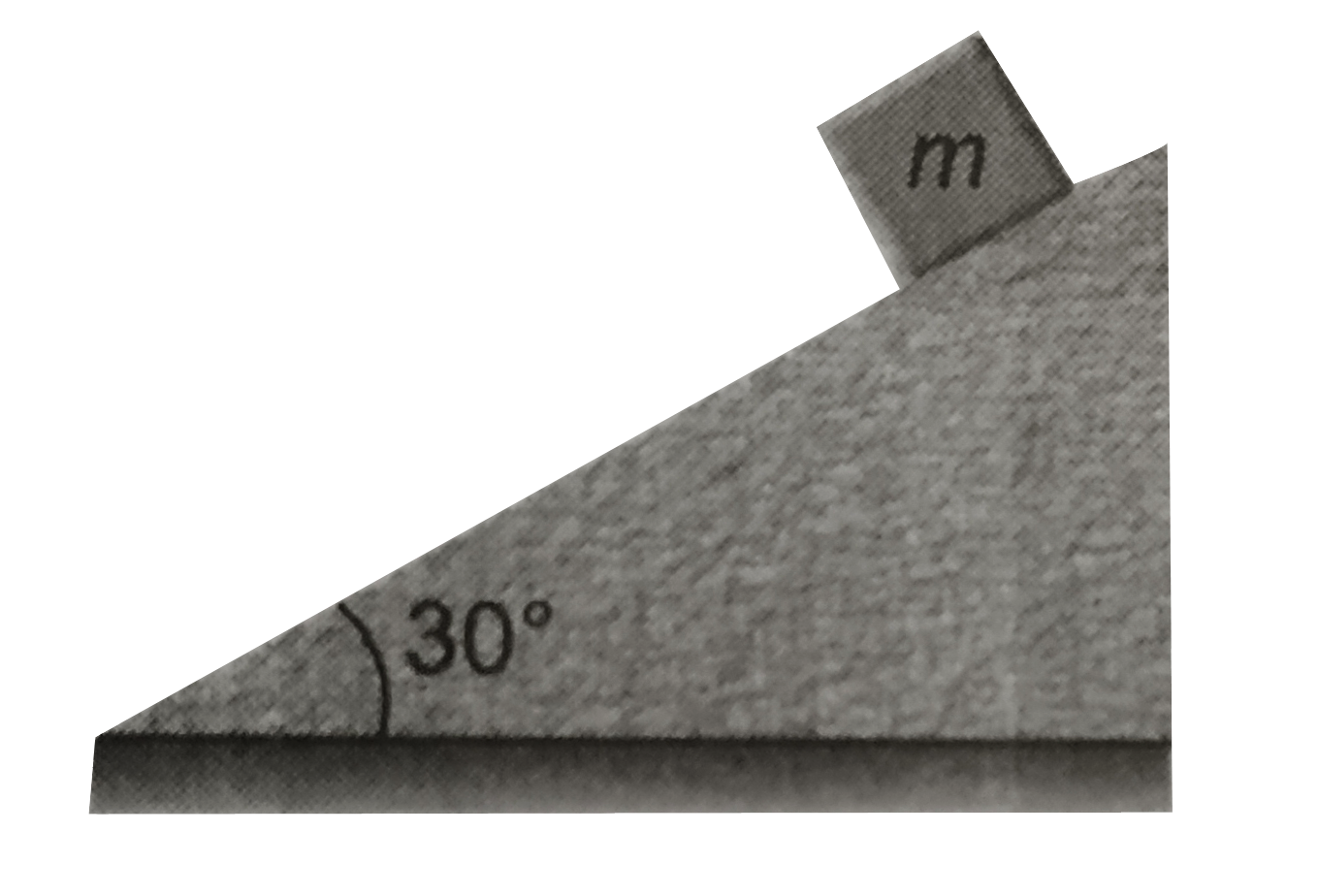
If the man wants to move the block up the inclined , what minimum force is required to start the motion?
The correct Answer is:C
Topper's Solved these Questions
- LAWS OF MOTIONBOOK - DC PANDEY ENGLISHCHAPTER - LAWS OF MOTIONEXERCISE - Subjective Question
27 Videos
- LAWS OF MOTIONBOOK - DC PANDEY ENGLISHCHAPTER - LAWS OF MOTIONEXERCISE - Check point 5.1
20 Videos
- LAWS OF MOTIONBOOK - DC PANDEY ENGLISHCHAPTER - LAWS OF MOTIONEXERCISE - Objective Question
32 Videos
- KINEMATICS 1BOOK - DC PANDEY ENGLISHCHAPTER - KINEMATICS 1EXERCISE - INTEGER_TYPE
15 Videos
- LAWS OF THERMODYNAMICSBOOK - DC PANDEY ENGLISHCHAPTER - LAWS OF THERMODYNAMICSEXERCISE - Level 2 Subjective
18 Videos
Similar Questions
A man wants to slide down a block of mass m which is kept on a fixed inclined plane of inclination 30∘ as shown in the figure .Initially the block is not sliding .
To just start sliding the man pushed the block down the inclined with a force F. Now , the block starts accelerating. To move it downwards with conatant speed the man starts pulling the block with same force. Surface are such that ratio of maximum static friction to kinetic friction is 2 Now, answer the following questions.
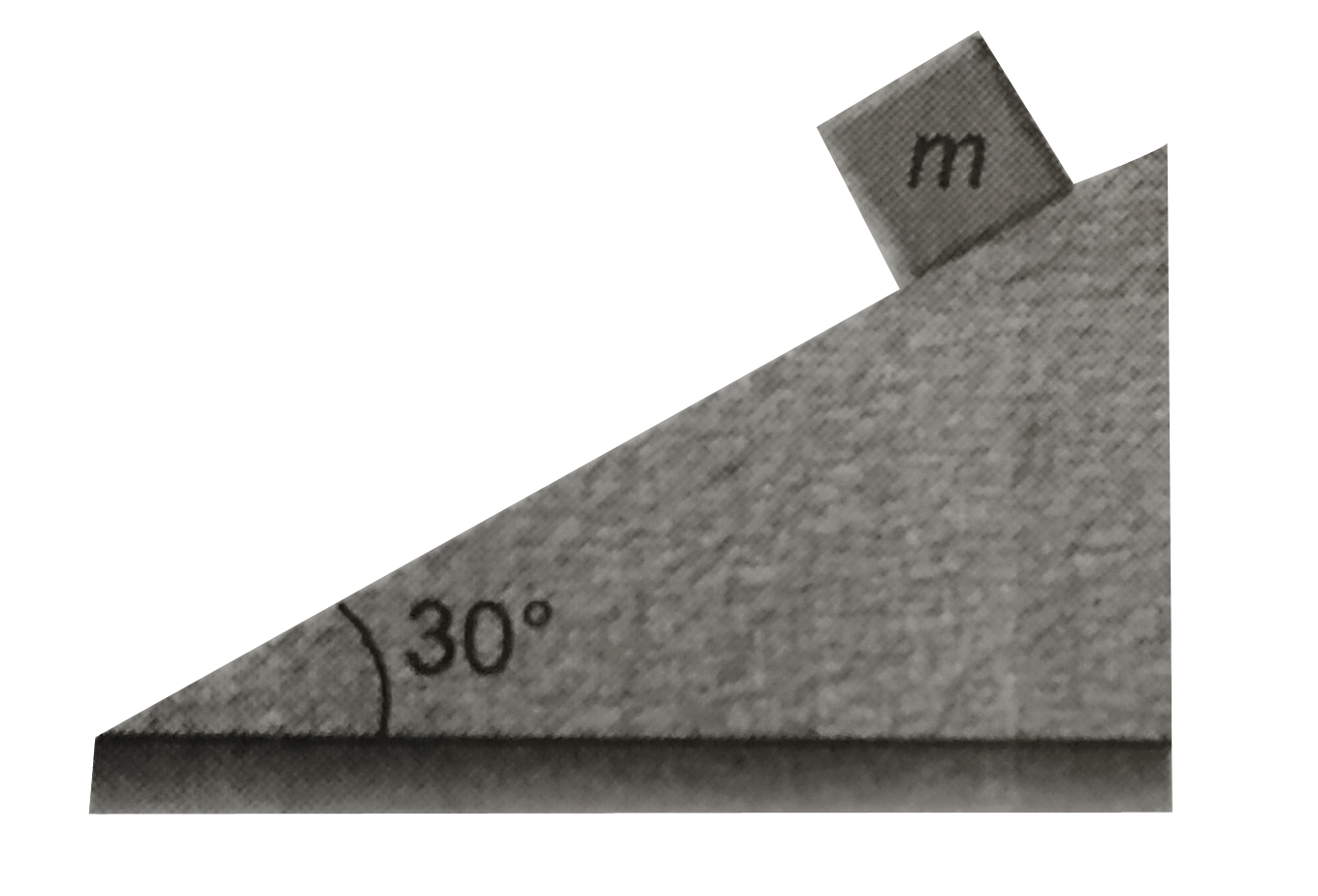
What is the value of F?
View Solution
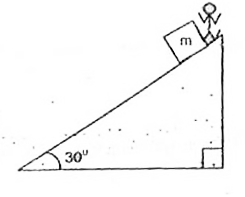
A man wants to slide down a block of mass m which is kept on a fixed inclined plane of inclination 30∘ as shown in figure initially, the block is not sliding. To just start sliding the man pushes the block down the inclined with a force F. Now the block starts accelerating. To move it downwards with constant speed, the man starts pulling the block with same force. Surfaces are such that ratio of maximum static friction to kinetic friction is 2. Now, answer the following questions.
What is the value of F?
View Solution
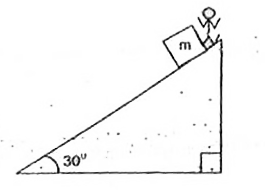
Now a man wants to slide down a block of mass m which is kept on a fixed inclined plane of inclination 30∘ as shown in figure initially, the block is not sliding. To just start sliding the man pushes the block down the inclined with a force F. Now the block starts accelerating. To move it downwards with constant speed, the man starts pulling the block with same force. Surfaces are such that ratio of maximum static friction to kinetic friction is 2. Now, answer the following questions.
What is the value of μs ?
View SolutionA man wants to slide down a block of mass m which is kept on a fixed inclined plane of inclination 30∘ as shown in the figure .Initially the block is not sliding .
To just start sliding the man pushed the block down the inclined with a force F. Now , the block starts accelerating. To move it downwards with conatant speed the man starts pulling the block with same force. Surface are such that ratio of maximum static friction to kinetic friction is 2 Now, answer the following questions.
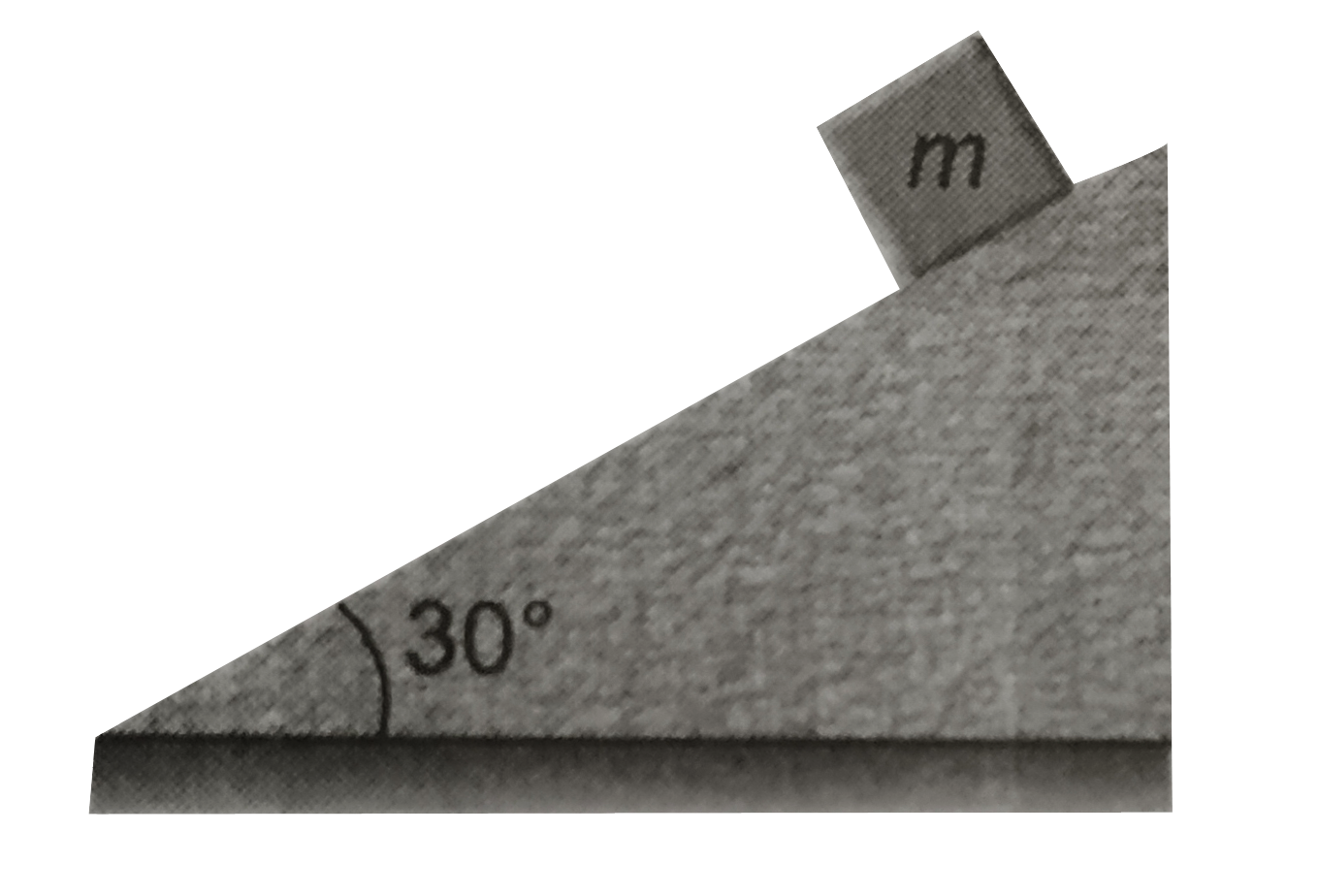
If the man continues pushing the block by force F its acceleration would be
View SolutionA man wants to slide down a block of mass m which is kept on a fixed inclined plane of inclination 30∘ as shown in the figure .Initially the block is not sliding .
To just start sliding the man pushed the block down the inclined with a force F. Now , the block starts accelerating. To move it downwards with conatant speed the man starts pulling the block with same force. Surface are such that ratio of maximum static friction to kinetic friction is 2 Now, answer the following questions.
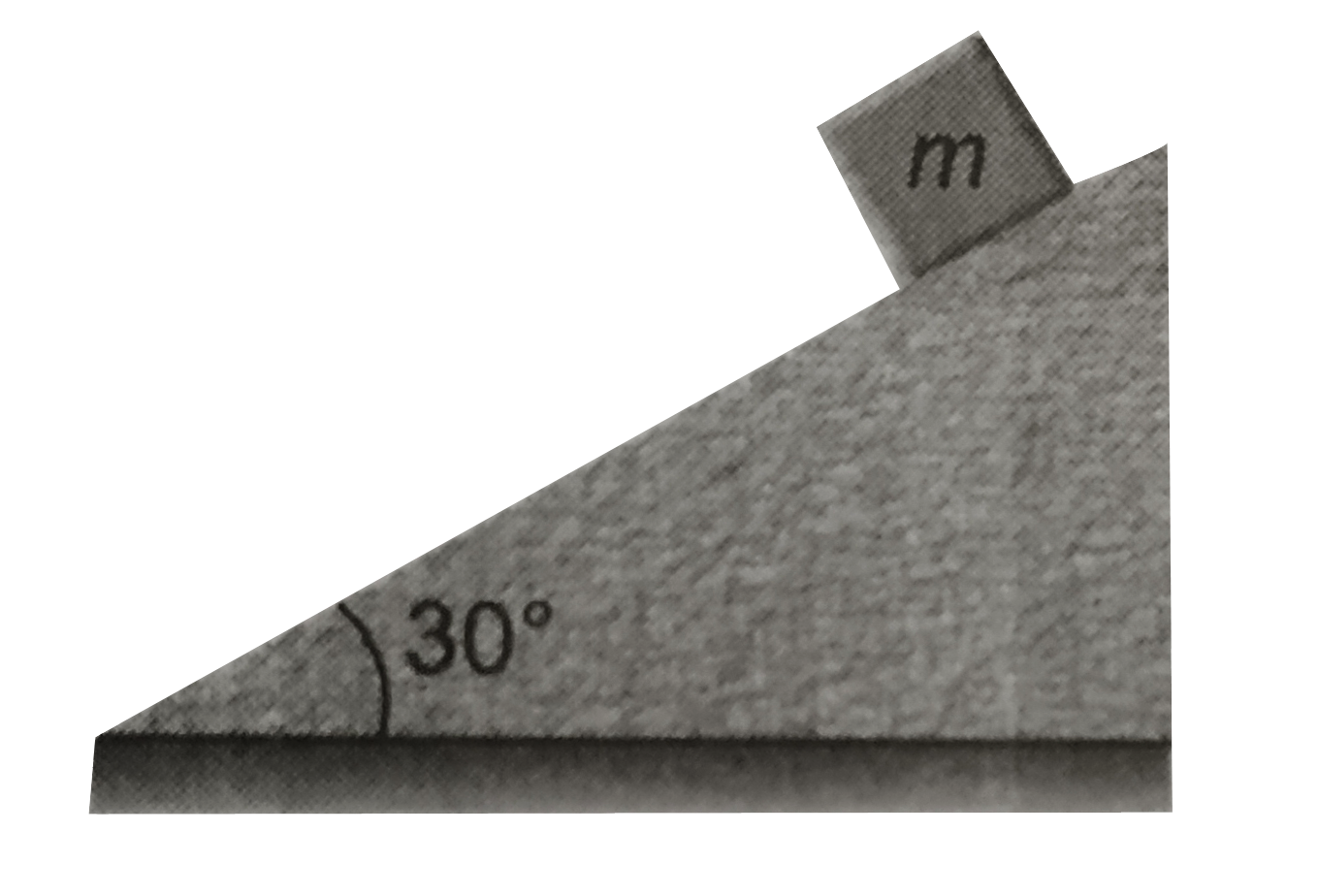
What minimum force is required to move it up the incline with constant speed?
View SolutionA man wants to slide down a block of mass m which is kept on a fixed inclined plane of inclination 30∘ as shown in the figure .Initially the block is not sliding .
To just start sliding the man pushed the block down the inclined with a force F. Now , the block starts accelerating. To move it downwards with conatant speed the man starts pulling the block with same force. Surface are such that ratio of maximum static friction to kinetic friction is 2 Now, answer the following questions.
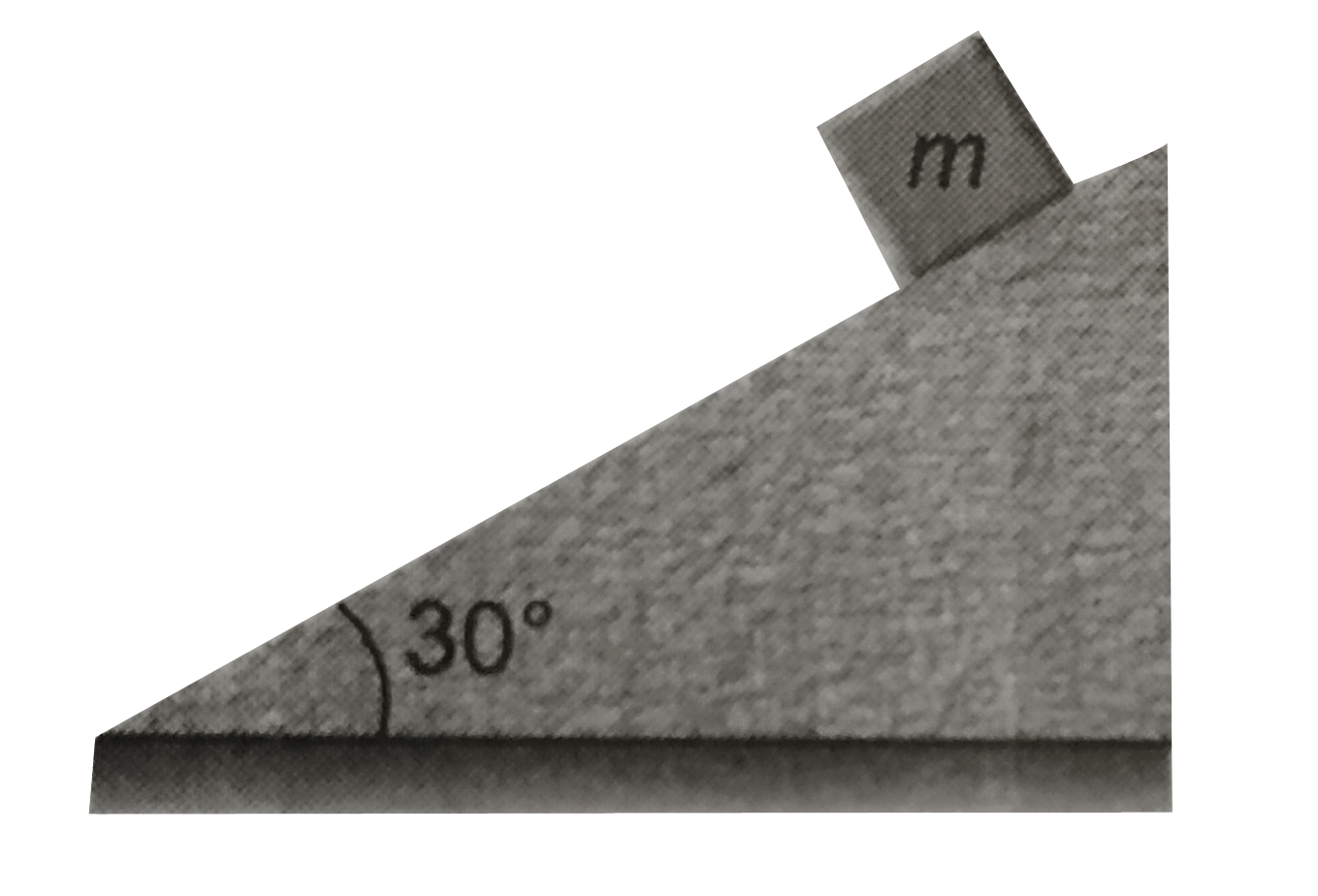
What is the value of μs, the coefficient of static friction?
View Solution
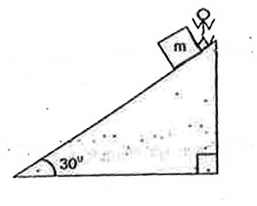
A man wants to slide down a block of mass m which is kept on a fixed inclined plane of inclination 30∘ as shown in figure initially, the block is not sliding. To just start sliding the man pushes the block down the inclined with a force F. Now the block starts accelerating. To move it downwards with constant speed, the man starts pulling the block with same force. Surfaces are such that ratio of maximum static friction to kinetic friction is 2. Now, answer the following questions.
If man continues pushing the block by force F, its acceleration would be
View SolutionA block of mass 10 kg is kept on a fixed rough (μ=0.8) inclined plane of angle of inclination 30∘. The frictional force acting on the block is
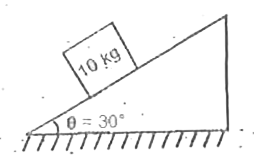
View SolutionA block of mass m slides down a rough inclined plane with an acceleration g2
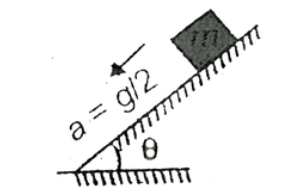
View SolutionA block of mass m moves with constant speed down the inclined plane of inclination θ. Find the coefficient of kinetic friction.

View Solution
